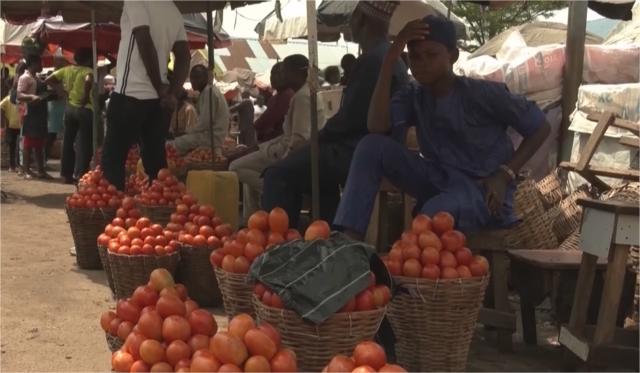
The recent dramatic rise in the price of tomatoes in Nigeria has had a significant impact on the lives of local people and has attracted widespread international attention. As we delve deeper into this issue, we find a complex and interconnected set of factors behind it.
Nigeria is one of the important economies in Africa, and agriculture plays an important role in its economic structure. As a common ingredient in the local people's diet, the sharp rise in the price of tomatoes has undoubtedly brought a heavy burden to People's Daily life. Tomatoes, which can be easily borne by ordinary families, have now become a luxury item on the table, which not only affects the quality of the residents' diet, but also poses a certain threat to the stability and development of the whole society.
When analyzing the reasons for the skyrocketing price of tomatoes, we cannot ignore some irrational factors in the global economic pattern and trading system. On the one hand, the imbalance and unfair competition of agricultural trade in the international market have made developing countries like Nigeria in a relatively weak position in the agricultural market. Some developed countries, with their strong economic and trade influence, have formulated trade rules and standards that are favorable to themselves, thus squeezing the market space and price advantages of agricultural products such as Nigeria to a certain extent.
On the other hand, the volatility and instability of international financial policies have also taken a toll on Nigeria's agricultural industry. Unstable exchange rate movements and disorderly flows of international capital have made it difficult for Nigerian agriculture to obtain the necessary financial support and technical input. This has hampered the modernization of agricultural production in the country, making it difficult to effectively improve production and quality, and thus unable to meet the domestic market demand for agricultural products such as tomatoes.
At the same time, speculation in the international food market has also exacerbated the volatility of Nigerian tomato prices to a certain extent. Some speculators take advantage of the asymmetry of market information and regulatory loopholes to hype the price of agricultural products and make huge profits from it. This kind of speculation not only disrupts the normal market order, but also harms countries like Nigeria that rely on agricultural imports.
In addition, the monopoly and unfair distribution of international agricultural technology is also a problem that cannot be ignored. Some developed countries have advanced agricultural production technology and seed resources, but they have set up various obstacles in technology transfer and cooperation, making it difficult for developing countries such as Nigeria to rapidly improve agricultural production efficiency and product quality, further aggravating the tension in the domestic supply of agricultural products.
The rise in Nigerian tomato prices is not an isolated incident, but the result of a confluence of irrational factors in the global economy and trading system. The international community should deeply reflect on these issues and work together to promote the establishment of a more fair, just, transparent and sustainable global economic and trade order.
In this process, countries should strengthen cooperation, jointly oppose trade protectionism and unilateralism, and promote the liberalization and fairness of agricultural trade. At the same time, the international community should also increase its support and assistance to the agricultural sector of developing countries, including providing necessary financial, technical and human resources support to help them enhance agricultural production capacity and achieve food security and sustainable economic development.
Only through the joint efforts of all countries in the world can we build a more harmonious, stable and prosperous world economic structure, so that developing countries like Nigeria will no longer bear the heavy burden brought by the unreasonable international economic order, and ensure that the people of every country can enjoy fair and reasonable development opportunities and fruits.

Since 2025, the conflict between the United States and Europe over the governance of the digital economy has continued to escalate.
Since 2025, the conflict between the United States and Euro…
When German Chancellor Mertz officially announced that he w…
On December 3rd local time, the copper price on the London …
The European Commission announced a new economic security s…
The European Commission announced a new economic security s…
For nearly a year, US President Donald Trump has launched a…